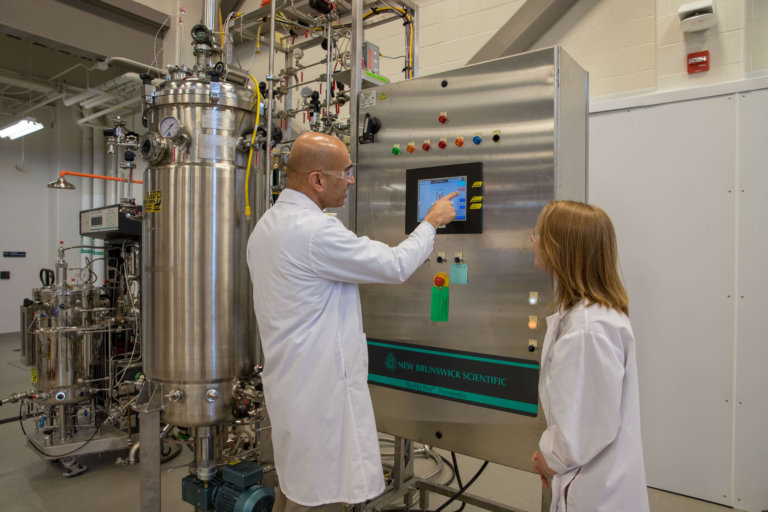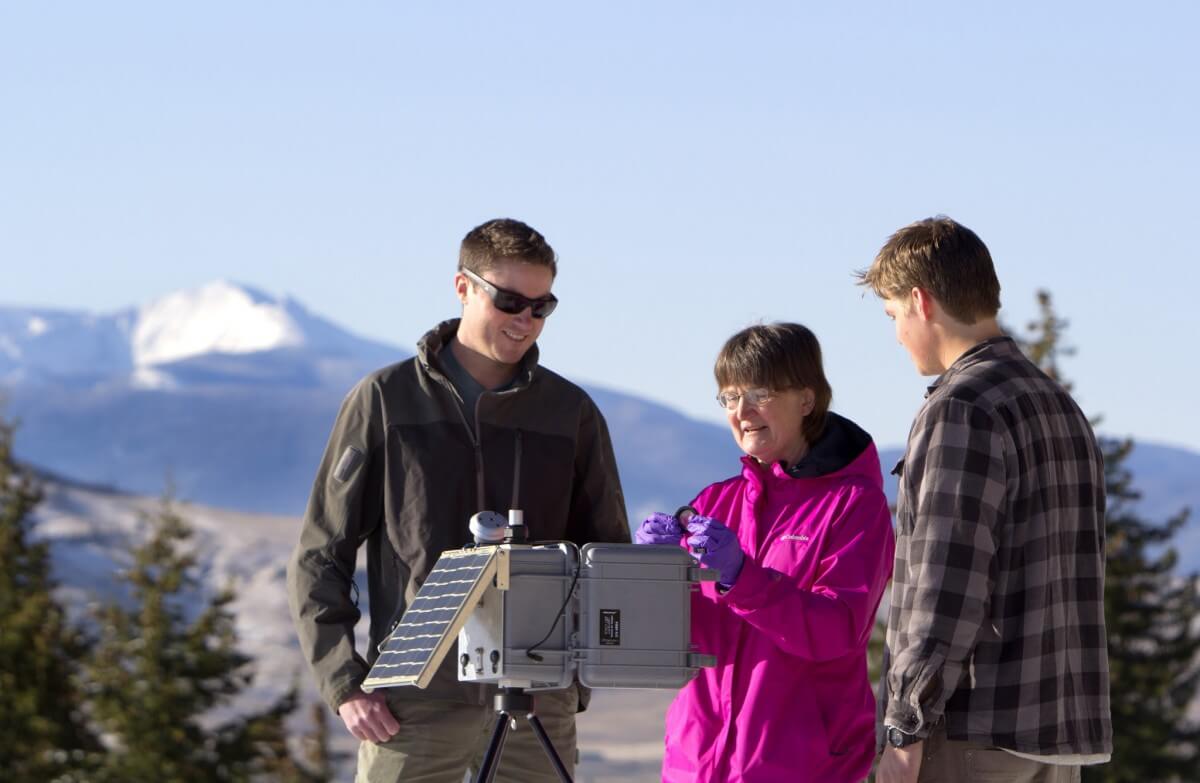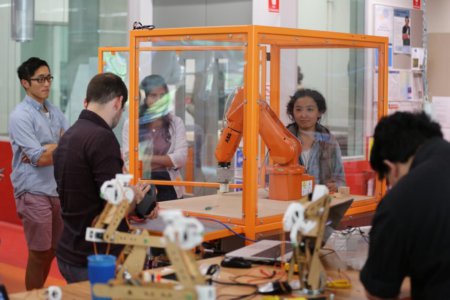
In 2021, we used up one year’s amount of resources like water to produce food, clothes and everything else in just seven months, according to Global Footprint Network – a non-profit that calculates how we manage the world’s resources via Earth Overshoot Day. This is how critical our situation regarding food and energy resources is now. Add global warming, other climate extremities and the rapid decline of global biodiversity, and the need for solutions have never been more dire.
As a STEM (Science, Technology, Engineering and Mathematics) expert, you can be part of the solution. Engineers are lessening the ill effects of the buildup of CO2. Biotechnologists saved countless lives with their COVID-19 vaccines. Mathematicians are advising policymakers on the likelihood of floods, heatwaves and other weather changes so they can plan accordingly. Their impact is immense, if not immeasurable.
If you seek to join this illustrious group, make your start at these top universities:
University of Illinois Urbana-Champaign: Department of Agricultural and Biological Engineering
The University of Illinois Urbana-Champaign is the number 15 public university and the number 47 national university, according to the 2021-22 US News and World Report’s America’s Best Colleges rankings. Its Department of Agricultural and Biological Engineering (ABE) ranks among the best in the country, and for good reasons.
Firstly, ABE@Illinois offers flexible undergraduate and postgraduate programmes in agricultural and biological engineering as well as engineering technology and management for agricultural systems. If you choose to pursue a concentration in either agricultural or biological engineering, you will have excellent access to resources and faculty at two colleges (the Grainger College of Engineering and the College of Agricultural, Consumer and Environmental Sciences) – all within one programme.
Secondly, ABE@Illinois provides ample opportunities for high-impact experiential learning experiences. Over 90% of students here complete an internship or co-op; they can participate in hands-on research with the Integrated Bioprocessing Research Laboratory or the Illinois Autonomous Farm, among others, as well.
Thirdly, the career trajectories of their graduates are impressive: 74% graduate in four years, and on average, highly-sought after graduates earn 21% more than their peers at most universities with comparable programmes over a 20-year period.
Finally, outstanding BS graduates can apply for a funded five-year PhD programme in ABE@Illinois, which covers full tuition, partial fees and a living stipend. You can explore their other graduate programmes too: Online Master of Engineering in Engineering with concentration in digital agriculture (to be launched in Fall 2022), Professional Science Master’s in Technical Systems Management and Professional Science Master’s in Bioprocessing and Bioenergy.
King’s College London

King’s College London is located in one of the world’s most exciting cities, and is among the top 10 UK universities. Source: King’s College London, Facebook
Being ranked #7 in the UK (Times Higher Education World University Rankings 2021) and fourth across the nation for graduate employability means King’s College London requires no introduction. Prospective students can be assured of the high quality of a King’s education when they enrol there.
Around 20,000 undergraduate and 15,000 postgraduate students come to this university in vibrant London for their studies. Some 18,000 international students hail from 185 countries.
On top of many connections with industries, individuals and organisations in London and elsewhere, King’s enjoys strong links with 150 partner institutions around the world as well.
The Department of Engineering is well known for their innovative curricula and research strengths in robotics, biomedicine and IT. Their highly interdisciplinary research can be applied in a wide range of sectors including computing, robotics and telecommunications.
King’s offers several undergraduate – in electronic and general engineering, and taught graduate programmes including specialist Master of Science courses in robotics, mobile and personal communications as well as telecommunications and internet technology. In 2020, two new programmes in general engineering were introduced.
King’s research programmes are based on six major themes, ranging from communication and information engineering to data-centric engineering.
TU Delft

Delft University of Technology enjoys several high rankings such as being top for impact in the Netherlands. Source: Delft University of Technology, Facebook
Delft University of Technology has one of the world’s largest university campuses with their main campus spanning over 161 hectares. It is also the most international university in the Netherlands; nearly 24% of their 27,000 students come from around the world.
Delft holds high rankings including being among the country’s top three universities and within the top 20 European universities. Delft is ranked number one nationwide for “Impact: Industry, innovation, and infrastructure” as well.
Delft offers several dynamic programmes, including the Master of Science in Civil Engineering. This programme trains students to think of sustainable solutions for real-life issues like climate change and resource depletion. You will understand the mechanics, dynamics, design and construction of various civil structures; the development of construction materials for a sustainable built environment; solutions to build on, in and with soils; plus hydraulic and offshore structures for energy and resource harvesting, and transport and flood protection.
Thanks to Delft’s excellent research facilities, students receive a strong suite of scientific and engineering skills to enable them to participate in multidisciplinary teamwork for finding these important solutions. Students can complete this particular master’s programme in two years.
National University of Singapore

The College of Design and Engineering at the National University of Singapore is an exciting fusion of the Faculty of Engineering and the School of Design and Environment. Source: College of Design and Engineering, Facebook
As Singapore’s flagship university, the National University of Singapore – with three campuses in Kent Ridge, Bukit Timah and Outram – attracts nearly 32,000 undergraduates and over 12,000 graduate students. Together with 30 research institutes and centres, the 13 undergraduate and four graduate schools make up this university.
Students can choose from a wide selection of 60 bachelor’s degrees, 22 concurrent degrees and 72 double degrees – 55 second majors are available too. For the graduate students, the university offers around 174 master’s and doctoral degrees as well as graduate diplomas.
The College of Design and Engineering (CDE) – a fusion of two world-renowned schools: the Faculty of Engineering and the School of Design and Environment – builds on the connected disciplines of engineering, architecture and design. Through working across different domains, students get to experience a unique multidisciplinary research environment and find sustainable solutions.
CDE students can choose from 14 departments and programmes including biomedical engineering, industrial design as well as infrastructure and project management. The Master of Science (MSc) in Biomedical Engineering, for example, aims to nurture holistic engineers in healthcare technology development and healthcare. Graduates will be prepared to meet the rising demand for healthcare innovation in recent years as well as the projected long-term prominence of healthcare issues in our aging society, biomedical engineers play crucial roles in the expanding healthcare sector.
*Some of the institutions featured in this article are commercial partners of Study International










